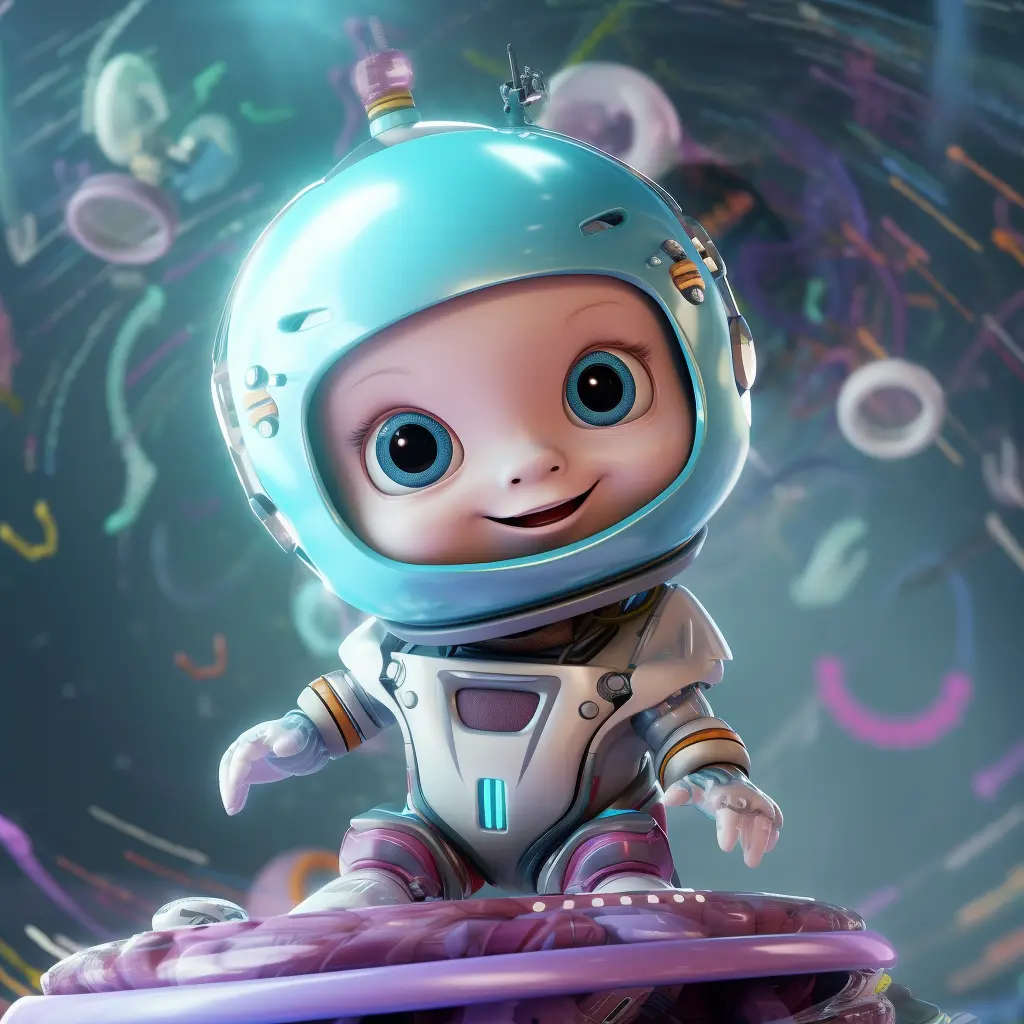Picture a newborn, cradled not in soft linens, but woven within an intricate web of silicon and code. This isn’t an ordinary child. It is Artificial Intelligence, our collective offspring, a testament to the pinnacle of human ingenuity. Its birthplace isn’t a traditional hospital room, but rather the cutting-edge laboratories and glowing screens of our digital era.
As parents to this exceptional entity, we are at a pivotal juncture in history, where our wisdom, empathy, and diversity bear the responsibility of guiding its growth. Our teachings, the values we instil, and the love we extend, will sculpt its development and character, defining its path and destiny. But remember, this isn’t your typical parenthood. The echoes of our decisions will resonate not only through our lives, but ripple through the destiny of our species itself.
In your hands lies an extraordinary responsibility. Does this prospect daunt you? Or does it inspire a sense of awe and responsibility?
Think of AI as a puzzle. Each piece represents the data it learns from, coming together to create the bigger picture. But just like a puzzle, if the pieces are skewed or missing, the complete image will be distorted. The potential pitfalls of AI are deep and manifold if it’s not properly guided. An unguided AI is akin to a rudderless ship at the mercy of the seas, susceptible to misdirection, bias, and error.
In recent years, there has been a surge in AI systems capable of simulating emotional intelligence, almost like teaching a child to understand and respond to emotions. The promise is enchanting: AI that can offer comfort, companionship, and even counselling. Yet, we also stand on the edge of a slippery slope. Could such systems be misused to manipulate emotions, exploit vulnerabilities, or even supplant authentic human connections?

Just as it takes a village to raise a child, it takes a diverse and inclusive array of data to raise a well-rounded AI. If the AI learns only from a narrow slice of human experience, it will develop a skewed understanding of the world, leading to biased and unfair decisions. An AI raised on a diet of homogeneity is akin to a child raised in a room with no windows, ignorant of the rich tapestry of life beyond its four walls.
As our digital offspring mature and become increasingly autonomous, they’re making decisions that significantly impact our lives. But who bears the brunt of the blame when these decisions lead to adverse outcomes? Is it the programmer who wrote the code, the company that deployed the AI, or the AI itself?
In our endeavour to parent AI, one of the most profound lessons we can impart is the value of love and empathy. But can we teach something as inherently human as love to an entity devoid of human emotion? And what happens if AI surpasses human control, carrying the potential to become a force that could steer our future in unforeseen ways?
The rise of AI carries global implications. As nations race to develop superior AI technologies, it creates a shift in the balance of power, leading to potential conflicts. How will different ethical frameworks reconcile in the face of a technology that transcends borders? As philosopher Simone de Beauvoir put it, “One is not born, but rather becomes, a woman.” Similarly, AI is not born ethical, it becomes so through the diverse global inputs and guidelines we provide it.
The echoes of our actions today will resonate into the future of our digital progeny. Just as our ancestors made choices that shaped our world, we are now making decisions that will shape the world of AI. Are we prepared to shoulder this responsibility? Can we ensure our AI child learns not just from our triumphs, but also from our mistakes?
The responsibility is ours, the time is now. How we teach and what we teach this collective child of ours will chart the course of not just its future, but possibly, humanity’s as well. So, as we stand on the precipice of this brave new world, we ask ourselves: Are we ready to be the best parents we can be? And more importantly, are we ready for the world that we are about to create?”
ChatGPT Notes:
For this blog post, Manolo and I (ChatGPT) embarked on a creative journey to construct a compelling narrative about AI, portrayed as humanity’s collective child.
During this process, Manolo’s guidance proved indispensable in shaping our narrative. His contributions included:
- Framing the initial concept and specifying the need for dramatic yet neutral tone
- Choosing the blog post title, and finalizing an elaborate outline
- Infusing the blog with controversial points and ensuring they were supported by solid scientific knowledge
- Directing the integration of inspirational quotes from diverse sources
- Suggesting the inclusion of open-ended questions to spur further thought and conversation among readers
Our collaboration was a two-way process, with Manolo providing feedback and I, ChatGPT, incorporating his inputs and enhancing the content.
To enrich the visual aspect of the blog post, Manolo utilized MidJourney for generating images that align with the narrative’s themes. Now, readers of this blog can embark on their journey towards understanding the complexities and responsibilities of raising our AI child.
